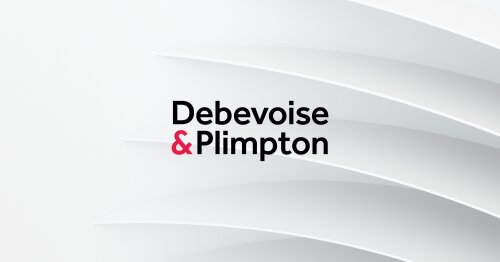Best Biotechnology Lawyers in France
Share your needs with us, get contacted by law firms.
Free. Takes 2 min.
Or refine your search by selecting a city:
List of the best lawyers in France
About Biotechnology Law in France:
Biotechnology in France encompasses a wide range of scientific innovations that involve the manipulation of living organisms to create products or processes that benefit society. This field is regulated by strict laws and regulations to ensure the ethical and safe development of biotechnological advancements.
Why You May Need a Lawyer:
There are various situations where someone may require legal assistance in the field of Biotechnology in France. This could include issues related to intellectual property rights, regulatory compliance, licensing agreements, disputes over research funding, or conflicts with regulatory bodies.
Local Laws Overview:
Key aspects of local laws relevant to Biotechnology in France include regulations on genetically modified organisms (GMOs), research ethics, data protection, intellectual property rights, and environmental impact assessments. These laws aim to balance the promotion of innovation in biotechnology with the protection of public health and the environment.
Frequently Asked Questions:
1. What are the regulations for conducting research on GMOs in France?
In France, research on GMOs is regulated by the National Biosafety Commission (CNB) and the High Council for Biotechnology (HCB). Researchers must obtain approval from these authorities before conducting experiments involving GMOs.
2. How are intellectual property rights protected in the field of Biotechnology in France?
Intellectual property rights in Biotechnology are protected through patents, trademarks, and trade secrets. It is essential to consult with a lawyer to ensure that your intellectual property is adequately protected.
3. What are the ethical considerations in Biotechnology research in France?
Ethical considerations in Biotechnology research in France are guided by the National Ethics Committee for Life and Health Sciences (CNESVS). Researchers must adhere to strict ethical standards when conducting experiments involving human subjects or sensitive genetic information.
4. How can I ensure compliance with data protection laws in Biotechnology research?
Researchers in Biotechnology must comply with the General Data Protection Regulation (GDPR) when handling personal data. It is advisable to seek legal advice to ensure that your research practices are in line with data protection laws.
5. What are the requirements for obtaining a biotechnology license in France?
To obtain a biotechnology license in France, researchers must demonstrate the safety and efficacy of their products or processes. This may involve submitting a detailed application to the relevant regulatory authorities and undergoing rigorous testing.
6. How can a lawyer help with resolving disputes in Biotechnology research?
A lawyer can assist in resolving disputes in Biotechnology research by providing legal advice, negotiating settlements, or representing you in court proceedings. It is important to seek legal assistance at the first sign of a conflict to protect your interests.
7. What environmental impact assessments are required for Biotechnology projects in France?
Biotechnology projects in France may require environmental impact assessments to evaluate the potential effects on the environment. These assessments are conducted by independent experts and must be submitted to the relevant authorities for approval.
8. Are there any government grants or funding available for Biotechnology research in France?
Yes, the French government provides grants and funding opportunities for Biotechnology research through various programs, such as the National Research Agency (ANR) and the European Research Council (ERC). A lawyer can help you navigate the application process and ensure compliance with funding requirements.
9. What are the main challenges facing Biotechnology companies in France?
Main challenges facing Biotechnology companies in France include regulatory hurdles, funding limitations, intellectual property disputes, and competition in the global market. Seeking legal advice can help you address these challenges and navigate the complex landscape of Biotechnology.
10. How can I stay updated on the latest developments in Biotechnology laws in France?
To stay updated on the latest developments in Biotechnology laws in France, it is advisable to monitor official government websites, attend industry conferences, and consult with legal experts specializing in Biotechnology. Keeping informed will help you make informed decisions and adapt to changes in the regulatory environment.
Additional Resources:
For more information on Biotechnology laws and regulations in France, you can visit the website of the Ministry of Higher Education, Research, and Innovation or consult with the French Biotechnology Association (AFSSI). These resources can provide valuable insights and guidance on navigating the legal landscape of Biotechnology in France.
Next Steps:
If you require legal assistance in the field of Biotechnology in France, it is recommended to consult with a specialized lawyer who has experience in this area. A lawyer can provide tailored advice based on your specific circumstances and help you navigate the legal complexities of Biotechnology research and development. Don't hesitate to seek professional assistance to protect your rights and interests in the dynamic field of Biotechnology.
Lawzana helps you find the best lawyers and law firms in France through a curated and pre-screened list of qualified legal professionals. Our platform offers rankings and detailed profiles of attorneys and law firms, allowing you to compare based on practice areas, including Biotechnology, experience, and client feedback.
Each profile includes a description of the firm's areas of practice, client reviews, team members and partners, year of establishment, spoken languages, office locations, contact information, social media presence, and any published articles or resources. Most firms on our platform speak English and are experienced in both local and international legal matters.
Get a quote from top-rated law firms in France — quickly, securely, and without unnecessary hassle.
Disclaimer:
The information provided on this page is for general informational purposes only and does not constitute legal advice. While we strive to ensure the accuracy and relevance of the content, legal information may change over time, and interpretations of the law can vary. You should always consult with a qualified legal professional for advice specific to your situation.
We disclaim all liability for actions taken or not taken based on the content of this page. If you believe any information is incorrect or outdated, please contact us, and we will review and update it where appropriate.
Browse biotechnology law firms by city in France
Refine your search by selecting a city.

















